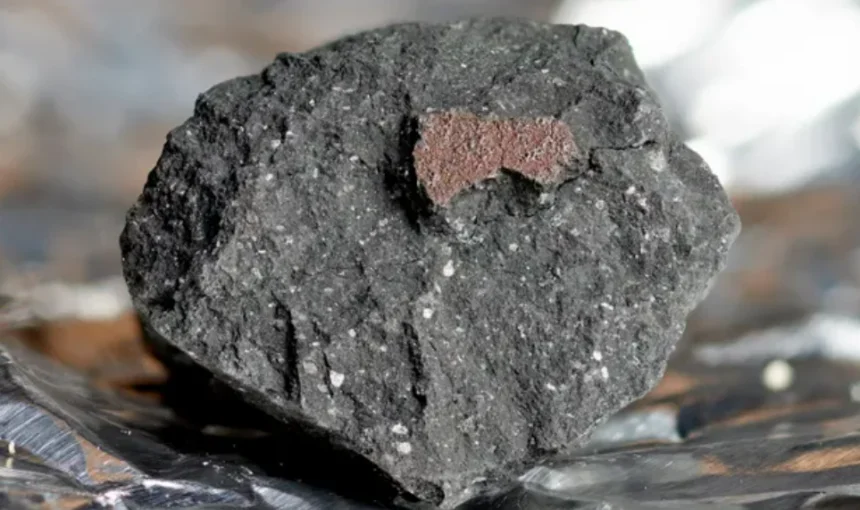The origins of water, which makes up three-quarters of the Earth’s surface and was essential for the emergence of life, are still a matter of active debate among scientists.
The strongest proof to date that water came to Earth from asteroids in the outer solar system has been provided by a 4.6 billion-year-old meteorite that crashed on a Gloucestershire driveway last year.
According to Dr Ashley King, a research fellow at the Natural History Museum in London and the author of a new paper on the space rock, the Winchcombe meteorite, one of the “most pristine” available for analysis, gave scientists “a tantalising glimpse back through time to the original composition of the solar system 4.6 billion years ago.”
According to one prevalent theory, the Earth was barren when it formed because the inner region of the solar system was too hot for water to condense.
The frost line is the boundary of the region where ice could form in the early solar system, and it is located in the modern asteroid belt. According to scientists, water may have come to Earth later through large impacts and icy meteoroids.
However, there are competing theories, such as water being carried on comets (which are mostly made of ice and dust) or other similar bodies.
The latest study lends credence to the theory that asteroids played a significant role in the formation of water on Earth. The majority of the Winchcombe meteorite was recovered just hours after its spectacular fireball lit up the skies over the UK during the lockdown in February 2021.
One of the larger pieces was found on the driveway of the Wilcock family home, and a few smaller pieces were discovered in nearby gardens.
The meteorite is the first carbonaceous chondrite meteorite ever discovered in the UK. These meteorites are the oldest type of meteorite because they are made of materials that were present when the solar system formed.
Importantly, it was collected and analysed almost immediately after being discovered, making it a rare uncontaminated specimen.
Additionally, 16 meteor cameras were set up specifically to capture the incoming meteorite, and a large number of doorbell and dashcam videos were also captured, allowing scientists to create an exact trajectory of the meteorite’s solar system of origin.
Most of the 70,000 known meteorites, on the other hand, were discovered without their impact being recorded – in some cases millions of years after they landed. “They’re just random rocks from space,” King explained.
According to the analysis, which was written up in the journal Science Advances, the meteorite came from an asteroid body close to Jupiter. A further finding of the study was that the water’s hydrogen isotope ratio closely matched that of water on Earth.
Extraterrestrial amino acids – prebiotic molecules that are fundamental building blocks for the origin of life – are also found in extracts from the Winchcombe meteorite.
The analysis suggests that similar asteroids have played a significant role in supplying the components necessary to launch oceans and life on early Earth because the composition of the Winchcombe meteorite is so flawlessly preserved.












